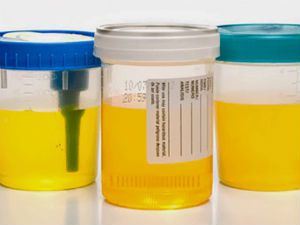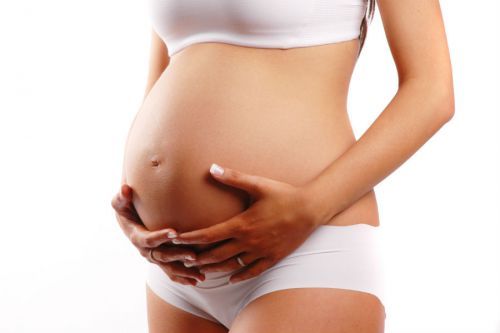Malfunction of any organ seriously affect physical and mental health. Urinary bladder dysfunction is a common disorder that causes a lot of inconveniences and problems for both children and adults.
In this article we will focus on the causes of development, symptoms, and treatment of neurogenic disorders of the organ responsible for the excretion of recycled liquid.
The bladder is an important organ system excretion of waste fluid. The main burden in the formation of urine take kidneys they purify the blood from waste products, which accumulate in the pelvis, and then through the ureter enter into the bladder.
How the bladder works
Starts the accumulation phase. Of the body wall gradually flatten and stretch, the pressure inside increases. Ganglia, located in the bladder or adjacent tissues, are sending this signal to the brain where quickly comes the reply, and the person experiences the urge to urinate (phase separation).
Some time they can be contained, but the amount of waste fluid will increase and cause even greater discomfort. 700 ml is the maximum volume of urine, the achievement of a high probability of involuntary urination.
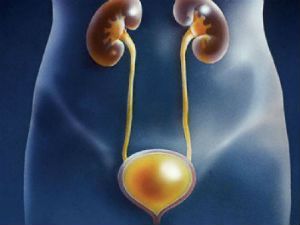
What is urinary bladder dysfunction
In the bladder can begin to develop pathological changes, which, usually is the lack of coordination of muscular shell of the body, its neck or external sphincter. As a rule, the reason for such changes is a violation of the functioning of the nervous system.
From disorders in the urinary system often affects children, but adults, especially elderly people, are also prone to neurogenic bladder dysfunction.
Classification of violations
Depending on the level of the nervous system on which the failure occurred, the differences in the various muscles of the bladder can cause 2 types of pathology:
- Hyperreflection bladder – pathology, characterized by an abrupt appearance of the urge to urinate. The person feels the need for the immediate release of the bladder from the fluid before the accumulation of the optimal amount. The disorder is accompanied by urinary incontinence, as well as uchenymi urge in the daytime and at night. The main reason hyperreflection bladder is spastic state of the muscles, which the patient is not able to control – people sometimes do not have time to run to the toilet.
- Hyporeflectivity bladder – the reverse situation in which the detrusor does not work even in case of considerable excess of the volume of accumulated fluid.
Overactive bladder is not filled to the end
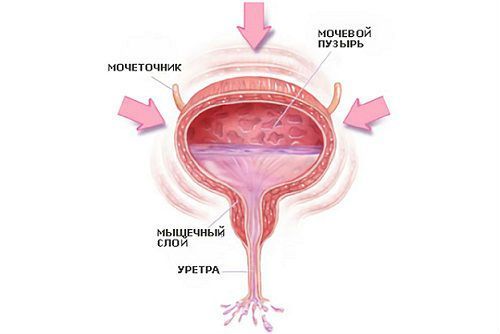
Urinary bladder dysfunction in children may have a mild form (enuresis, incontinence due to stress, frequent urination in the daytime), the average (lazy or unstable bladder) and heavy, reflectornuu in which the body wall is not reduced alone, and observed involuntary urination.
Neurogenic bladder is found in every tenth child aged 3 to 5 years. The vast majority of young patients were girls because of higher levels of estrogen increases the sensitivity of the receptors of the detrusor. Most often, the pathology is manifested by urinary incontinence. In the process of growing this problem many children disappear, and the teenage period is only a small percentage.
Numerous studies have revealed the role of genetic factors in the causes of abnormalities of the bladder: if you have problems with regulation of urination had one of the parents, the measure of the probability of occurrence of problems the child is around 35%, if both – 70%.
Reasons
The most common cause of neurogenic urinary disfunktsii body are neurological disorders at different levels, which are the result of problems with coordination of the detrusor or the external sphincter of the bladder with the accumulation of urine or her selection.
Tumors in the walls of the detrusor may cause bladder dysfunction
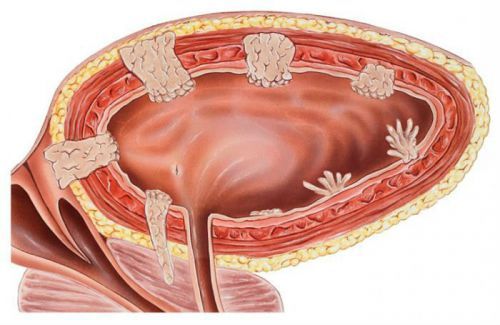
Such abuses result in:
- myelodysplasia (congenital malformations, causing damage to the Central nervous system);
- trauma to the spinal cord or brain;
- malfunction of the vegetative system;
- disturbances in neuroendocrine regulation;
- problem with receptor sensitivity;
- tumors in the centers of innervation of the detrusor;
- Parkinson’s disease;
- multiple sclerosis;
- pressure on tumors in nearby tissues;
- hyperplasia of the prostate in men;
- atherosclerosis;
- age features and changes.
In the later stages of pregnancy, women generally concerned about frequent urination, but this is due to the pressure of the fetus on the organs and is not a pathology.
Symptoms
Urinary bladder dysfunction is expressed disorders of urination. The clinical picture depends on the type of pathology.
In the case hyperreflection bladder you experience the following symptoms:
- imperative (urgent) the urge is sometimes so strong that the patient can hold them only for a second;
- day pollakiuria – frequent urination during normal the total volume of urine;
- urinary incontinence;
- enuresis.
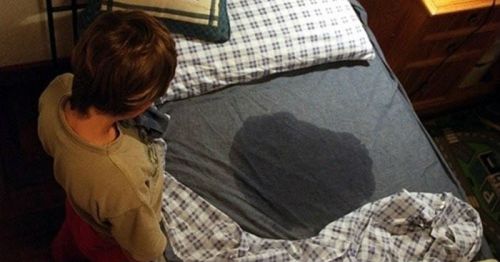
Dysfunction of the bladder, the child must Wake in the night
Hypotension bladder has opposite signs:
- the weakening or absence of urination;
- rare urination, with full and even crowded on;
- feeling of incomplete emptying;
- a large amount of residual urine;
- overexertion of the abdominal wall at a sluggish urination;
- spontaneous release of urine (the pressure of full bladder leads to dehiscence of the external sphincter);
- constipation;
- urinary tract infection;
- innervation of the urinary bladder (absence of desires in the normal functioning of the muscles of the body).
Diagnosis
Before prescribe treatment, the physician shall comprehensive examination of the patient.
As a rule, it includes:
- check condition of the Central nervous system of the patient;
- blood tests and urine tests;
- a bacterial culture test;
- magnetic resonance imaging of the spine and brain;
- EEG (scan of brain activity);
- ultrasound and x-ray study of the bladder;
- electromyography of the pelvic floor muscles and the anal sphincter (assessed neuromuscular transmission, as muscle and nerves);
- the inspection of the inner surface of the body of the cystoscope;
- urodynamic studies;
- keeping a journal in the frequency of urination.
Cytoscopy allows you to examine the bladder from the inside
Comprehensive diagnosis of disorders of urination in children should be conducted with mandatory participation of a neurologist, a psychologist, a children’s nephrologist, urologist and pediatrician.

Unfortunately, due to the diversity of modern methods of study the bladder dysfunctions is not always possible to determine the exact cause of onset of pathology.
Treatment
The main directions of therapeutic strategy in disorders of the urinary system are:
- non-pharmacological treatment;
- drug therapy;
- surgery.
An experienced doctor always tries to prescribe the least invasive therapy with minimal side effects.
Non-pharmacological treatment of bladder dysfunction, the most safe type of therapy, comprising:
- adhering to a sleep walk in the fresh air;
- training on – the patient tries to follow a physician established plan of urination, with a gradual increase between time interval;
- exercises to strengthen the pelvic muscles;
- physiotherapy (electrophoresis, thermotherapy, laser, amplipuls, ultrasound, diadinamotherapy);
- psychotherapy;
- therapeutic baths with sea salt and forced to urinate every 2 – 3 hours with hypotension bladder (the child also need to Wake in the night, forming the connection of the urge with the need to Wake up).
Psychotherapy is essential for recovery
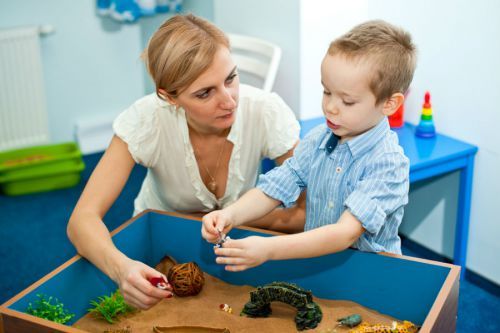
In case of insufficient effect of physical therapy combined with her medication:
- when hyperreflection bladder prescribed anticholinergic drugs (M-holinoblokatorov), tricyclic antidepressants, antispasmodics, antagonists of CA+, nootropics, Valerian or motherwort, desmopressin (children older than 5 years);
- when hyporeflexia bladder treatment with cytochrome C, coenzyme forms of b vitamins, M –holinomimetikami, adaptogen (schisandra, Siberian ginseng), glycine.
If the effect of the use of conservative treatment methods available you will need surgery by which restored the smooth muscle sphincter of the bladder, is created or is strengthened outer pulp of the transverse muscles, collagen is introduced at the mouth of the ureter, is an increase urinary bladder (E. cystoplasty), as well as surgery to the nerve ganglia.
For quick recovery it is also necessary to carry out social adaptation of the patient.
Complications and related issues
If untreated, problems with urination can lead to various complications and development of opportunistic diseases.
Pyelonephritis often complicate the course of bladder dysfunction.
Very often companions of neurogenic disorders of the bladder become cystitis and pyelonephritis or vesicoureteral reflux. The latter can lead to such complications as arterial hypertension, renal failure, reflux nephropathy, ureterohydronephrosis.
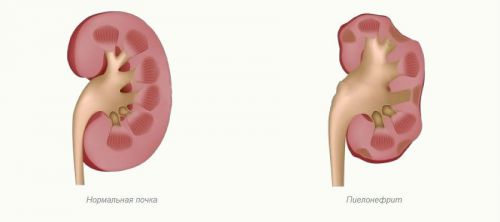
Hyporeflectivity the bladder in a child can cause urinary tract inflammation, impaired blood flow in the kidneys, shrinking kidneys or scarring its parenchyma, nephrosclerosis.
Prevention of neurogenic bladder dysfunction
Preventive measures urgently needed to prevent the emergence of problems in the urinary system and prevent further progression of existing diseases.
Requires regular full inspection of the children in the clinic for timely diagnosis of the disease, compliance with child sleep, maintaining a healthy lifestyle. Adults should closely monitor the progress of adaptation of the child in the team in the kindergarten and school, as often it is the problems of socialization becomes the impetus for development of bladder dysfunction. It is also important to develop in children a healthy attitude to potentially stressful situations, a nervous and shy child always more susceptible to any diseases.
People who are at risk, it is important to constantly be seen by a doctor periodically and to explore the urodynamics. In order to prevent the doctor may prescribe herbal medicine, physical therapy or receiving small doses of drugs appropriate to the type of pathology.
Diseases of the urinary system can seriously affect the quality of human life. Given that bladder dysfunction in a larger number of cases, affected children, parents must earlier age of the child to observe his mental and physical condition, and frequency of trips to the toilet. At the first symptoms of the disease should consult a doctor and strictly follow the prescribed course of therapy.


